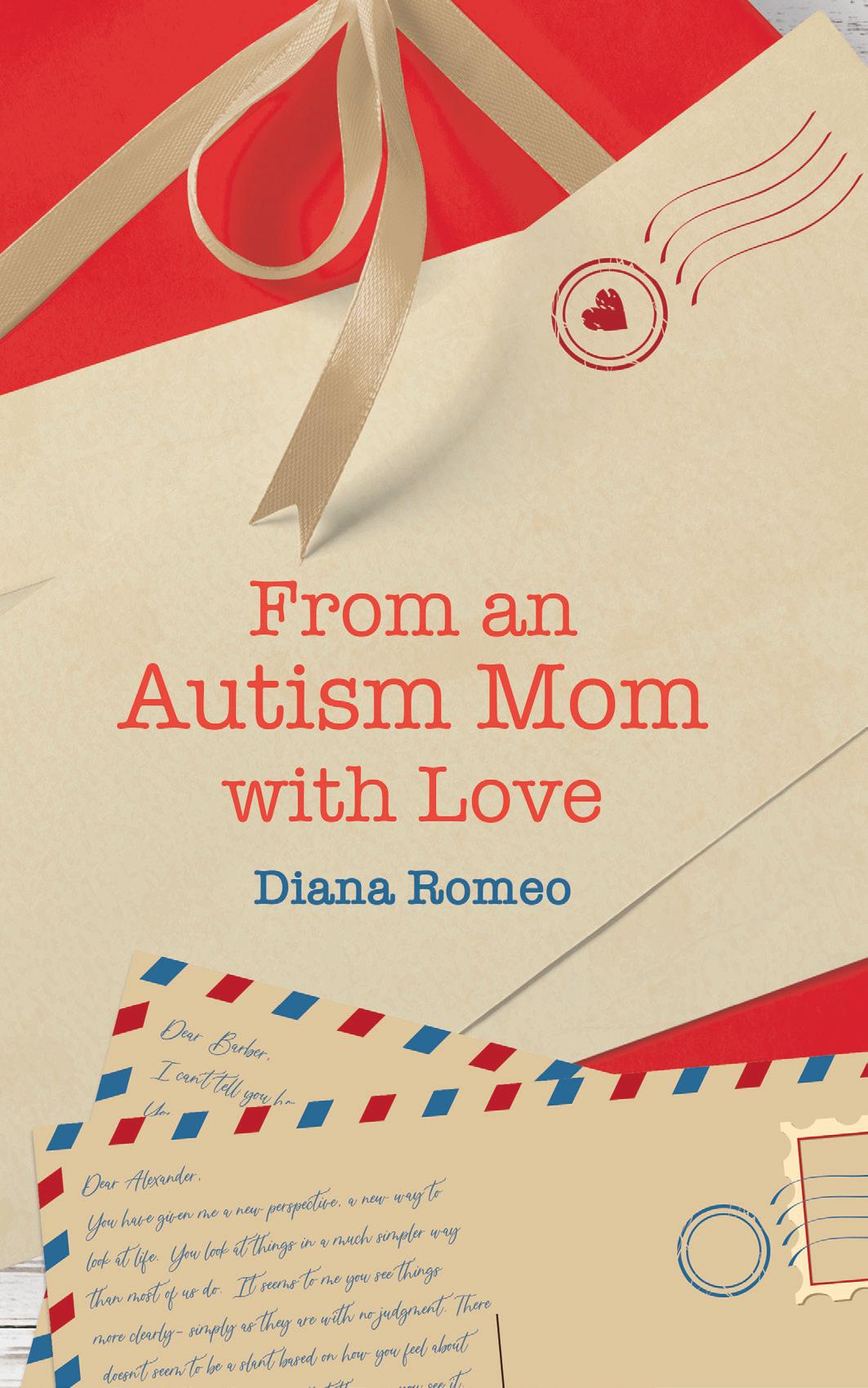
8 minute read
THE AMAZING WAYS MUSIC THERAPY BENEFITS EVERYONE
We entered a small room connected to a local resource center, Family Resource Network, which supports families with special needs children. Bonded to me (literally) were my then two and three-year-olds, who each had a dedicated sitting place on the grey-spotted carpet which was assigned matching instruments throughout the room. We were welcomed with frolicking, cheery music being plucked on the guitar strings by the music therapist sitting Indian-style in the front of the rectangular, four-walled meeting space. Immediately, there was a calm yet upbeat vibe my kiddos were magnetized to.
Our first experience with music therapy was led by music therapist Karen Rae Sanchez, who is now President and Founder of The Pacific Resiliency Center for Psychology, Wellness, and the Arts serving the Central Valley and Bay Area region of California.
“I love that I can take my passion for music and use it to help people in so many ways. It warms my heart to see them reach their goals and objectives,” shares Ms. Sanchez.
History of music therapy
Music therapy has been used as far back as Ancient Greek times. Pythagoras, an ancient Greek philosopher (who also discovered the Pythagoras Theorem), connected the benefits of music therapy to soothe people and cure ailments of the body, mind, and soul. In more modern times, Francis Raucher, a psychologist, discovered the link between music and emotion being intuitively felt, such as when one hears music that sends “chills” or goosebumps.
A study carried out by University of California PhD student Matthew Sachs found 90 percent of musicians report feeling chills. “The most powerful chills occur when expectations are being met, and the reward system in our brain becomes active.”
My son was around five years of age when he declared, “Mommy, I want to play the piano.”
I am not sure who or what prompted his curiosity, but I first chalked it up to a benign curiosity. However, for the next two weeks, multiple times a day, he would ask about when he would start piano lessons. As I am sure many of you can attest, when our children want something, they can truly be sufferingly relentless (this was one of many times). Along with his early love for an upbeat Bruno Mars tune or carelessly dancing to a live band with his grandfather on the sidewalks of Downtown Disney, music has always been a reliable go-to that brought smiles to his face.
I asked Ms. Sanchez about a time when she exhibited her profession as a music therapist that warmed her heart or ignited her decision to do what she does. She kindly shared this heartwarming story:
“When I worked in the adult oncology unit, I had a patient who needed a bone marrow biopsy but couldn’t have any more pain medication. They called me in and he sang ‘Amazing Grace’ with me while I played the guitar over and over again until the procedure was over.”
Additionally, Ms. Sanchez has combined her passion and background for music and psychology in another unconventional way.
“I was on [working] in the pediatric burns intensive care unit with a young boy in a medically induced coma with burns over 95 percent of his body. His heart rate was the fastest I had ever seen. I used my knowledge of music and entrainment (referring to an individual’s chronological, physical, and behavioral relationship with their environment) to match the speed of the live music to his heart rate. Then gradually slowed down my music and watched as his heart rate decreased. We know that research has shown [a correlation between] a slower heart rate and a greater physiological relaxation response.”
How music affects our bodies
The term “Mozart Effect” is the popular idea that listening to classical music can enhance the intelligence of people and babies in particular. What should be stressed is to turn on this so-called “Mozart Effect” does not mean one has to only listen to Mozart. On the contrary, one must only listen to music that triggers these responses, which may be any genre from Def Leopard to Billie Holiday to the country-stylings of Hank Williams or the soulful sounds of Aretha Franklin.
What we experience, what we are exposed to, and what is familiar to us drive what we see and hear.
The more we listen to music, the more fuel that fills our music memory. We, as humans, have expectations, and when those expectations are met or exceeded, our brain and bodies are rewarded. At this climactic point of listening to a song that hits our individual peak, there is a release of dopamine, a neurotransmitter by the brain, which sends pleasure signals to the rest of the body.

To say music is a drug is nothing short of the truth. A healthy one on that note!
Music and the pandemic
We all are seeking channels to cope healthily in an age when we feel anything but safe. People are outside more than ever, and bicycle shops around the globe have lines going out the door every day of the week.
Fender, one of the leaders in the guitar retail industry, is selling more guitars in 2020 than any other year in its history. Within the music stream, according to statistics by Data Driven Investor, “SiriusXM has signaled that it expects to add more subscribers than anticipated after tracking a 40 percent rise from earlier projections. Additionally, with an anticipated increased cash flow to $7.7 billion.”
Yet, within music therapy, it is Telehealth (the use of digital technologies to access health care services) that drives much of the medical field to be able to support mental health while keeping our physical health distanced. Ms. Sanchez further elaborates, “Because of the increased utilization of Telehealth, the possibilities are endless as far as what we can offer and how accessible our services can be. I’ve expanded my practice to include mental health and wellness services, along with other creative arts therapies such as art therapy, to focus on emotionally supporting the whole person.”
My bright, inquisitive 11-year-old young man has his defiant moments like stomping off in a tiff when I recommend he get some piano practice, then hearing about how that practice is taking up his precious iPad time. Yet, when he concludes a lesson on Thursday afternoons, his casual sway down the hallway always has a noticeable T-swag bounce. Once he shares a hug, details about his piano lesson pass through his voice with excitement and enthusiasm.
“I love that I can take my passion for music and use it to help people in so many ways. I [Ms. Sanchez] use music to help engage a child with autism to help execute commands or questions such as ‘what’s your name?’”
Music creates a language individualized for each person, each unique soul. As Ms. Sanchez illustrates, “music creates a space for each person.” Music interweaves a world that doesn’t always make sense when words are not enough. As for my son whose mind is never at rest, music gives him a sanctuary to be who he is—and that is always enough.
REFERENCES
“How the pandemic has increased online music streaming for only 1% of the music business.” Retrieved November 30, 2020. https://medium.com/datadriveninvestor/how-the-pandemichas-increased-online-music-streaming-for-only-1-of-the-musicbusiness-d6180d01ae5f Beetjnes, D. & Reumers, R. (2019). “Emotion in music, giving you the chills.” Retrieved November 28, 2020. https://abbeyroadinstitute.nl/ blog/emotion-in-music-giving-you-the-chills/ Pauwels, Ernest, K.J., Duccio Volterrani, D., Mariani, G., and Kostkiewicsc M. (2014). National Center for Biotechnical Information. “Mozart, music, and medicine.” https://www.ncbi.nlm.nih.gov/ McGilchrist, S. (2011) BBC News. “Music releases mood-enhancing chemical in the brain.” Retrieved November 28, 2020. https://www. bbc.com/news/health-12135590
JC Ellinger brings life stories and experiences as an autism mom to publications such as Autism Parenting Magazine and Exceptional Needs Today. She is currently working on her first children’s book geared at bringing relatability and support to other ASD children just like her amazing son. She carries an MBA from Regis University and a BA in Communications from CSU Long Beach. Now, she is returning to graduate school to add an MA in English to her resume and spread her love for writing to young minds.
Facebook: https://www.facebook.com/jc.ellinger.writer Instagram: https://www.instagram.com/jc.ellinger Email: Juliet.ellinger01@gmail.com
EXCEPTIONAL BOOKS
From an Autism Mom with Love
By Diana Romeo
From an Autism Mom with Love is a collection of personal letters that gives you a look into the life of one family’s experience living with someone on the autism spectrum. These letters are written from a mom to her son, to God, and to the community at large and will bring you through a range of emotions. They share experiences spanning from diagnosis, through school years, until today, when he is transitioning into adulthood. The letters are funny, sad, poignant, frustrated, informative, and hopeful. This is a real-life look at one family’s experience with autism in a world that is not always autism-friendly and how this mom continually learns to navigate the many challenges and joys. Life with autism is often a roller coaster, but this book shows it is a ride filled with love.
“This little gem of a book packs quite a punch. The letters draw you quickly and deeply into the all-consuming world of autism…Unexpectedly powerful.” MsJoeyjay
“I thoroughly enjoyed reading this beautifully composed book. Each entry delicately details the author’s experiences and unconditional love for her wonderful son.” Randy B.

TO PURCHASE: : https://www.amazon.com/Diana-Romeo/e/B08FCSMBWJ
Diana Romeo is a proud, full-time, stay-at-home mother of two children. For 19 years she has been on the front line of mothering a very sweet boy who falls on the moderate to severe side of the autism spectrum. She also is mother to a sweet and drama-filled 17-year-old daughter. She recently published her first book, From an Autism Mom with Love. She previously published articles describing her family’s adventures in autism in Autism Parenting Magazine and Exceptional Parent Magazine. She has a degree in business management and has worked in human resources.
Facebook: https://www.facebook.com/dianalromeo/ To purchase: https://www.amazon.com/Diana-Romeo/e/B08FCSMBWJ










